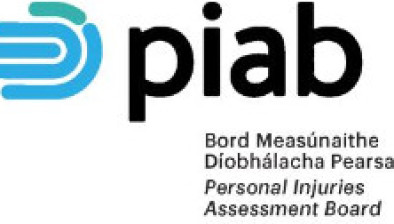High Court: Prisoner’s personal injuries claim against Mountjoy Prison dismissed

The High Court has dismissed a claim from a prisoner who was injured in an unprovoked attack in toilets at Mountjoy Prison.

About this case:
- Citation:[2024] IEHC 715
- Judgment:
- Court:High Court
- Judge:Mr Justice Conor Dignam
Delivering judgment for the High Court, Mr Justice Conor Dignam could not find that there had been a breach of duty on part of the prison authorities, but observed that their failure to produce documentary evidence recording the incident potentially deprived the plaintiff of evidence which would have supported his claim and indicated that in the circumstances, no order as to costs would be appropriate.
Background
The plaintiff claimed that he sustained injuries on 14 June 2013 whilst imprisoned at Mountjoy Prison.
The plaintiff gave evidence that on the day of the incident he had been working in the kitchen at the prison and was sitting in the toilets smoking with other prisoners, as they were allegedly permitted to do by the prison officers. There was no CCTV or in-person supervision in the toilets.
The plaintiff claimed that another prisoner, Mr AB, came into the toilets, kicked the door open and punched him, and that an alarm was activated which led to a large number of prison officers quickly bursting into the toilet, causing him to fall backwards against the radiator.
The plaintiff alleged that he was frog-marched out of the toilets and did not get to the medical centre, only being brought to the Mater Hospital a number of hours later. In respect of Mr AB, the plaintiff claimed that Mr AB had been disciplined with a P19 the previous day for attempting to attack a prison officer the day before, and that he should not have been back working in the kitchen after being disciplined.
The defendants put the plaintiff on proof of his narrative in many respects and denied liability on the basis that the assault was sudden, unprovoked and not reasonably foreseeable by them.
The High Court
Mr Justice Dignam observed that the applicable legal principles as to the duty and standard of care owed by prison authorities towards their prisoners arose from Muldoon v Ireland [1988] ILRM 367, Bates v Minister for Justice & Ors [1998] 2 IR 81, Casey v The Governor of Midlands Prison & Ors [2009] IEHC 466, and Creighton v Ireland & Ors [2010] IESC 50.
Having considered the parties’ evidence, the judge accepted the propositions that “the duty of care on the defendants is the duty to take reasonable care but emphasised that this must be assessed in the context of the environment and therefore there must be vigilance and supervision that does not apply outside of a prison. He posed the test as being whether the defendants, in that context, took all reasonable steps to prevent the type of injury that occurred and whether the injury could have been reasonably foreseeable or reasonably anticipated.”
The court was satisfied that the plaintiff had been assaulted in a sudden and unprovoked manner, but was not satisfied that the plaintiff’s recollection of the events was accurate in circumstances where he stated that he remembered very little of the incident and was slipping in and out of consciousness during the assault and afterwards.
In particular, the court preferred the defendants’ evidence to the effect that no alarm was activated, that prison officers did not enter the toilets, that the plaintiff had received medical attention from a nurse at the prison and that the plaintiff and Mr AB were not subsequently allowed out together onto a landing to “fight it out”.
Recognising that the fact that the court was not satisfied that the plaintiff’s recollection was correct could not, in itself, be determinative in circumstances where it was satisfied that the plaintiff was assaulted, Mr Justice Dignam highlighted that the real question was whether the incident was reasonably foreseeable to the defendants.
The judge noted the plaintiff’s contentions that prison officers should have foreseen the incident by reference to Mr AB’s behaviour that morning, where he was allegedly in a temper having been refused leave for a funeral, and that it was a breach of duty not to remove Mr AB from the kitchen temporarily or permanently following his P19.
The court was not satisfied that there was sufficient evidence to discharge the burden of proof that it was reasonably foreseeable that an incident might occur in circumstances where there was no evidence of refusal of leave to attend a funeral and where the sanction Mr AB received was the lowest possible.
Mr Justice Dignam also indicated that he could not review the correctness or reasonableness of the Governor’s decision not to remove Mr AB from kitchen duties, absent expert evidence, and found that where there was no evidence of any continued agitation on part of Mr AB and where there was insufficient evidence that the assault on the plaintiff was connected to the incident leading to Mr AB’s caution, the imposition thereof, or any denial of leave, he was not satisfied that the Governor’s failure to conduct a risk assessment was a breach of duty.
As to the lack of CCTV and/or in-person supervision in the toilets, Mr Justice Dignam concluded: “Supervision of a toilet area (whether by CCTV or in-person) is a particularly sensitive issue and raises specific issues about balancing the need for security and the rights of prisoners referred to in Casey v The Governor of Midlands Prison and Creighton v Ireland. That might not necessarily preclude such measures in all cases but against the backdrop of the kitchen being staffed by well-behaved prisoners and there having been no previous assault in the kitchen I am satisfied that it was not a breach of duty not to have such measures in place.”
Conclusion
Finding no liability on part of the defendants and dismissing the plaintiff’s claim, the High Court indicated that there should be no order as to costs in circumstances where the absence of P19 documentation recording the assault on the plaintiff may have deprived him of evidence which supported his case.
Knowles v The Minister for Justice and Equality & Ors [2024] IEHC 715










